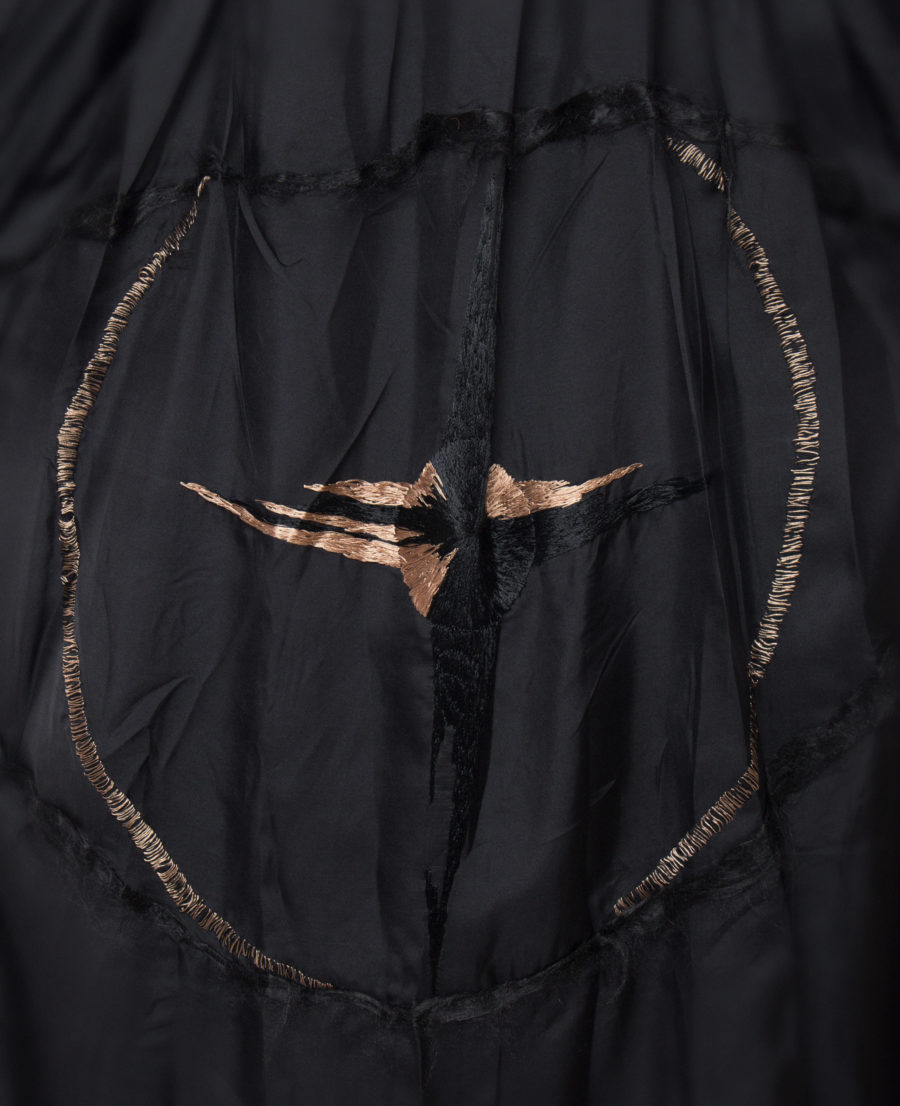
Founded by fashion designer Maria Tverdokhleb, ONO-Project is engaged in and open to various artistic, scientific and business collaborations in order to create and encourage an innovative and ethical path in fashion and other creative industries. These are the main principles we follow:
- Reducing negative environmental impact of the fashion industry with a further goal of turning it into a neutral/positive impact. Research on alternative solutions of material sourcing, transport and manufacturing.
- Ethical approach. Every person engaged in the process is treated with the same respect, payed a fair wage with fair working hours. Every ONO-Project piece sold is provided with a Certificate listing the names of people who created it, and the origin of the fabrics.
- Building an economical model that would be sustainable for the brand, fair for the producer and the customer. Our goal is to shorten the distribution and supply chain in order to be able to provide the best quality of product with the best price. We don’t follow fashion seasons and consolidate our efforts to create the best products with minimum material/financial waste.
- ONO-Project research is the union between art, fashion, humans and nature. We believe in the mind changing power of beauty and boundless creativity. That is why creative collaboration is an integral part our brand.
- Consumer education, to encourage thoughtful and quality-oriented buying decisions.
Perfect solutions are yet to be discovered and we are currently testing and integrating new approaches and techniques, but as a Chinese proverb says: “A journey of a thousand miles begins with one step”. We are happy to share the path with those who already joined us and are looking forward to meet new like minded collaborators (read more in blogue).
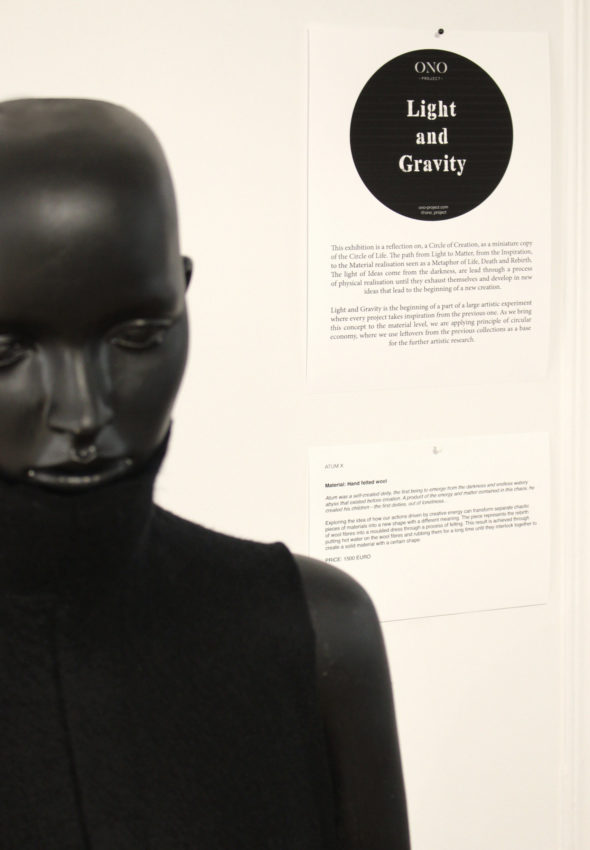 LIGHT AND GRAVITY
LIGHT AND GRAVITY
03/10/2019 – 06/10/2019
EXPOSITION WITH EDWARD MILLS
read more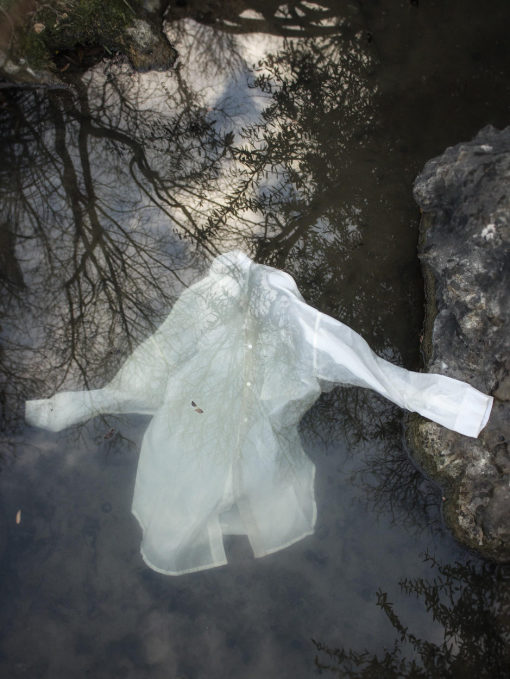 EXHIBITION “SYMBIOSIS”
EXHIBITION “SYMBIOSIS”
9TH – 15TH MAY at MI Galery, Paris This exhibition is an exploration of how the creation of clothes is a part of the Circle of Life; one that also indicates the relationship between humanity, the rest of the natural world and physical objects around us. The purpose is to question how this relationship can […]
read more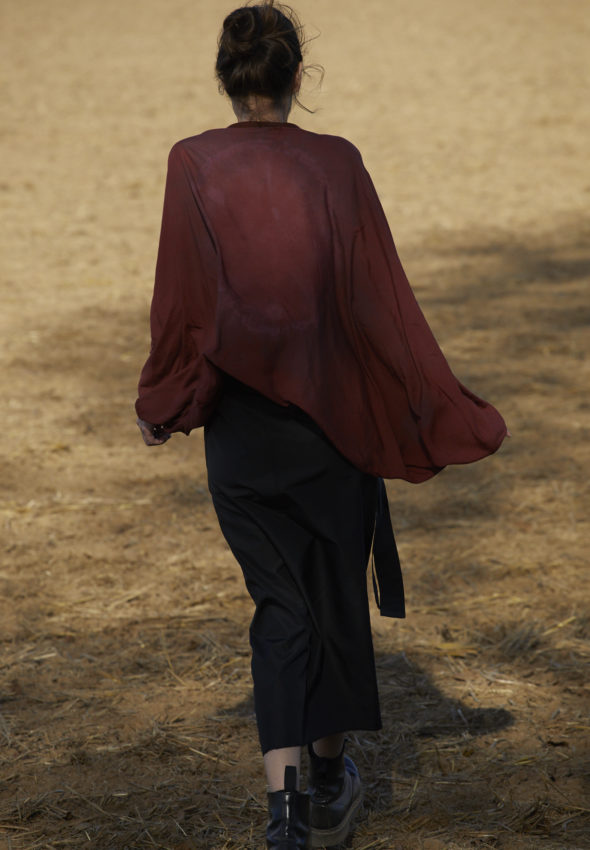 ONO-PROJECT. Brand Launch
ONO-PROJECT. Brand Launch
GALERIE JOSEPH 16 RUE DU PERCHE 18TH AVRIL 2019 18H00-22H00 POP UP BOUTIQUE 19APRIL-20TH APRIL 2019
read more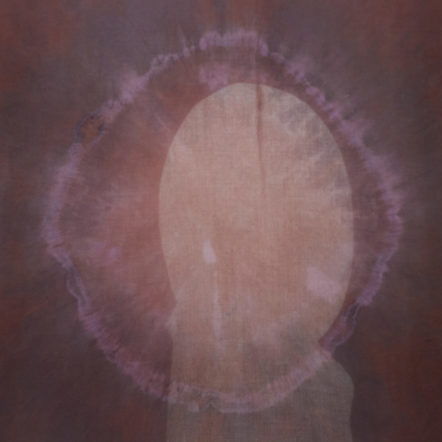 3/25/2019
3/25/2019
During the coloration process, a large percentage of the dye does not bind to the fabric and is lost to the wastewater stream. Approximately 10-15% dyes are released into the environment during dyeing process making the effluent highly colored and aesthetically unpleasant. Public perception of water quality is greatly influenced by the colour. So, the […]
read more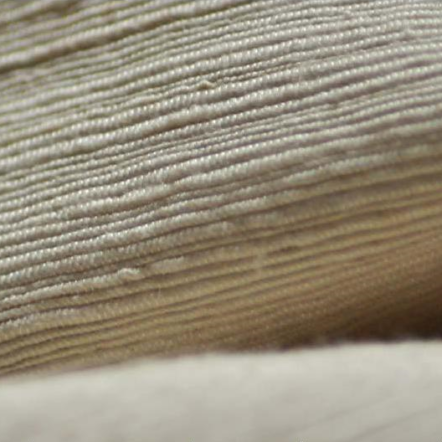 1/23/2019
1/23/2019
Kapok Fabric is a new sustainable fabric created and woven much the same way as natural cotton but the process is more delicate. KAPOK fibers are short therefore the fabrics can only be created with special handmade techniques. The material is sources from mountain community manufacture in Nepal. As the trees are rather large and […]
read more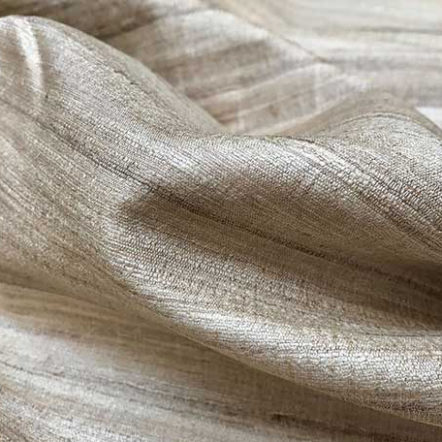 1/23/2019
1/23/2019
Tiger Kisha silk, origin from Bengal, is composed of a sericin coating (25%) wrapped around the fibrion (75%). Harvested according to a non violent method during which the worm is not killed, named “AHIMSA”, the cocoon is collected only after that the butterfly flied away, preserving the shine and “crispy” aspect of the keratin. The […]
read more



